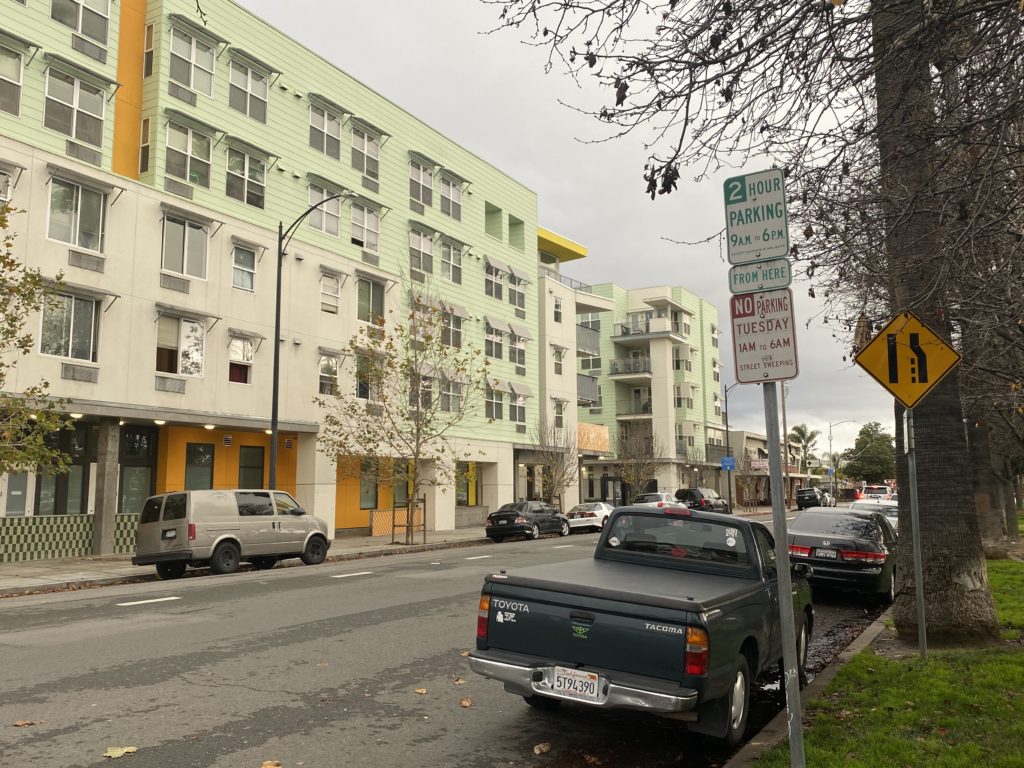The grace period for timed parking in San Jose is over. The city is ticketing violators again starting tomorrow.
San Jose stopped enforcing time-limited parking during the COVID-19 pandemic. It phased in partial enforcement in the summer for parking limits of less than two hours. Now the city will also enforce parking restrictions on spaces with limits of two hours or more.
City officials hope the renewed efforts, utilizing automated license plate reader technology, will encourage more parking space turnover in areas with high traffic volume. San Jose estimates there are roughly 684 time-limited parking areas citywide, from 12 minutes to four hours. A violation can result in a $40 citation.
“This enforcement (will) ensure people looking for parking have places to park in busy areas,” Colin Heyne, spokesperson for the city transportation department, told San José Spotlight. “If people had been taking advantage of (nonenforcement) previously, they’re not going to be able to do that anymore.”

Heyne added the city has been giving out some warnings for these parking violations.
“Our parking motto is strive for compliance,” he said. “We always give people the opportunity to follow the rules if we can.”
The city relies on a high-speed, computer-controlled camera system to enforce time-limited parking areas. The cameras scan parked vehicles as parking patrol cars drive through these zones, noting the license plate, location and time. Heyne said this allows parking patrol officers to keep better track of posted time restrictions.
San Jose has used this technology for more than a decade at Mineta San Jose International Airport, and more recently in public garages and on police cars. The system is also used to enforce residential permit parking zones and assist with stolen vehicle recovery.
Derrick Seaver, president and CEO of the San Jose Chamber of Commerce, said this renewed enforcement could have similar impacts on businesses as the closures of San Pedro Square and Post Street did, where some businesses benefit while others suffer.
“(For) the restaurant and food and beverage industry, that’s going to be helpful, but retail establishments would want people on-site longer,” Seaver told San José Spotlight. “The balance is going to be key.”
Homeless advocate Scott Largent worries the enforcement will further criminalize unhoused people living in their vehicles. San Jose is working on tallying the number of homeless people living in RVs, but the city recorded nearly 5,000 people living without shelter as of last February. People living in their cars parked along areas with time-limited parking throughout the pandemic, Largent said, and San Jose doesn’t have an active safe parking program.
“This is going to create a big tsunami of cars having nowhere to go,” Largent told San José Spotlight.
Heyne said the policy is not designed to target homeless people.
“If we suspect that a vehicle is being lived in, we leave it alone,” Heyne said. “We contact our colleagues at the housing department and they send the homeless response team over with resources.”
Contact Tran Nguyen at [email protected] or follow @nguyenntrann on Twitter.



Leave a Reply
You must be logged in to post a comment.